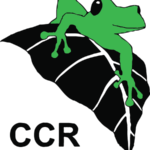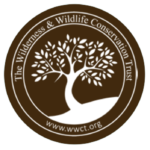Responsible/Sustainable Tourism
“We are deeply passionate about sustainable and responsible tourism, as we realize every day the lasting impacts, small decisions and actions we take can make on nature, the environment, and our everyday lives” – Deepak Prakash, Owner, The Lodge at Wah, Palampur and The Lodge at Wah, Kandbari.
The Lodge was built by the Prakash family specifically as a home to lead a wholesome, healthy lifestyle away from city life. While the Wah Tea Estate has been in the family since 1953, there was a general inclination to protect the natural beauty of the area. Thus, there begun a quest to protecting natural resources, using best practices, adopting the architectural style of the area with local materials and craftsmen, ensuring no wastage of electricity and avoiding use of harmful chemicals.
No Single Use Plastic: There is minimal use of plastic and there is every attempt to reduce its usage and the idea is to move to a zero-waste lifestyle. Toiletries provided are made from natural ingredients, and, are filled in reusable ceramic dispensers. They are sourced from a small local business in reusable bulk containers. Drinking water is provided in glass or copper bottles.
Safe Garbage Disposal: The property has done away with plastic garbage bin liners and lined the bins with tin making it easy to clean and wash. Housekeeping uses soapnuts to clean floors along with essential oils to ward off insects and mosquitoes. Cling wrap has been replaced with beeswax wraps as well. Dry waste is segregated and recycled, and wet waste is used for permaculture techniques of organic farming.
Water Conservation: Rain water is harvested for use in the gardens and part of the tea estate. Guests are encouraged to keep showers short.
Energy Efficiency: The large windows in the common room let in plenty of natural light and fresh air. Energy efficient appliances and lighting are used reducing electricity wastage. Very little cement has been used during construction and its use restricted to largely the kitchen. Mud bricks made with mud extracted during construction have been used for the main walls. In the summer, the mud walls keep the interiors cooler thus reducing the need for use of air-conditioners. In the winter months, the mud retains heat from the energy efficient all-weather air-conditioners, and the double insulation in the wooden ceilings further traps the heat, therefore requiring them to be switched on for a few hours only.
Nature and Biological Diversity Conservation: The tea gardens follow the same principles of no toxic chemicals and Wah Tea is wholly pesticide and weedicide free. Neem oil and chilli paste are used to get rid of pests naturally, biochar is being brought in to replace fertilizers and the tea waste is used as natural mulch material to increase productivity of the land.
Local Community Engagement: The entire team at Lodge at Wah are from the local community and nearby villages, and come with stories, experiences and anecdotes about their life in the region. Guided treks and hikes are conducted by a company that employs young men from the villages who know the terrain and are happy to take you on untrodden paths. The toiletries are sourced from a local establishment that runs a small batch factory.
Produce is sourced from the inhouse organic garden and selected local farmers who follow organic farming practices. Dairy is procured from the cowherd who lives behind the house, while raw and natural honey is sourced from a local apiary not far away along with spices, Himalayan rock salt and cold pressed cooking oils. Pickles and sauces are made either by the ladies on site or sourced locally from the village. Peaches and apricots are used to make ice creams and jams for the guests. Wheat is also grown within the Estate and used for making breads and rotis.
Light Footprint Tourism: The Lodge has taken steps to ensure that harsh toxic chemicals are not used. The home was built without the use of these chemicals; instead, a natural white clay was used to add the white colour to the indoor walls. The wood is polished naturally with linseed oil and beeswax. Mosquito repellent is made in house with natural oils.
Sensitive Destination Discovery: Offering plenty of activities that are easily accessible on foot or a short drive away, these are done with sensitivity with insights to the region, and through the eyes of the local guides who are from the nearby villages.
Heritage Preservation: The Lodge has been built in the traditional ‘Gaddi’ or Kangra style of architecture. The Gaddi tribes build their homes using slate roofs and mud flooring. Materials used at the time of construction was sourced from less than two miles around the estate and have a backstory. While walking through Palampur town, the distinctive aroma of pine wood led them to the Old Palampur Courthouse which was being demolished. The Prakash family jumped at the opportunity and brought the wood including roof lining details, banisters from witness stands and whole doors and windows.
The Lodge serves the Kangra Dham’s local thali with ingredients either grown in-house or sourced locally.
Human Touch: The Lodge would like to be increasingly involved in the local community by starting a reading program for the children and helping women switch to environmentally safe feminine products.
Future plans include moving to renewable energy such as solar energy and increasing rain water harvesting to use the water in the tea gardens and organic kitchen garden, where eventually they would like to grow even more fruits, vegetables and herbs to provide guests with 100% organic meals thus providing the farm to table experience.






